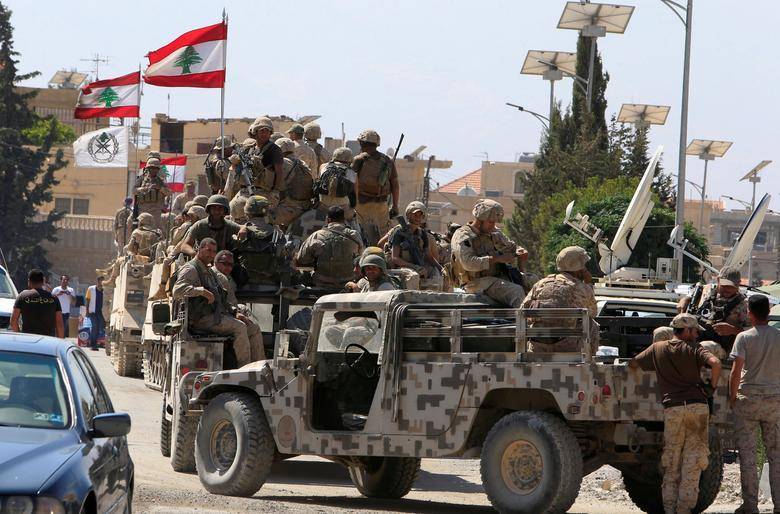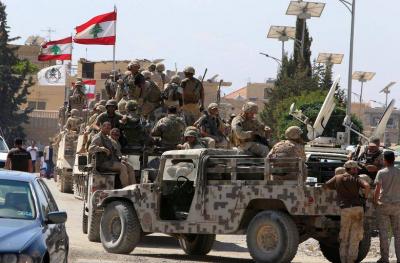The security operation executed by the Lebanese army in Baalbek, eastern Lebanon, has resulted in a new reality where drug dealers and those convicted of shooting and targeting the Lebanese army have lost their community and tribal cover, marking a new turning point, according to a security source quoted by "Asharq Al-Awsat."
This reality is evident from statements issued by the wanted individuals or their associates, criticizing the alignment of clans, families, and active parties in the region alongside the army, and the failure to provide protection for the wanted individuals. These statements have failed to exert pressure on the army to halt its security operation and have also failed to urge parties to intervene to slow down the security momentum, which has targeted prominent names involved in drug trafficking, gunfire, and theft.
Calm has returned to the Shraouna neighborhood in Baalbek, which was raided by the army, establishing fixed military positions, and activities have returned to normal after many residents who had fled to nearby areas due to the security tensions and army raids last Friday returned.
Some residents have resumed their work and trade, with a significant withdrawal of the raiding forces, leaving fixed points that allow the army to intervene comfortably.
Residents blame the wanted individuals and traders who have turned the neighborhood into a scene of chaos, gunfire, and nearly constant daily chases and pursuits due to suspicious activities, theft, kidnapping, protection for the wanted, and drug trafficking and use.
The army's raids and pursuits, which firmly held a military and security grip on the neighborhood over a four-day operation that detailed every aspect of it, resulted in the arrest of several traders and the dismantling of several "Captagon" and hashish factories, alongside dozens of cameras planted on the balconies and rooftops of houses overlooking the eastern and western entrances to the neighborhood to monitor the army's movements. The owners of these buildings, who are still under investigation, were also apprehended.
The confiscations included several suspicious vehicles, and four facilities designated for promoting and using drugs were demolished. Additionally, weapons and ammunition were confiscated, including "launcher" ammunition inscribed with Hebrew writings. Army raids also targeted sites suspected of sheltering the wanted individuals, including the towns of Al-Kenisa, Rihya in northern Bekaa, and Jabaa in western Baalbek, extending to western Bekaa.
A security source indicated to "Asharq Al-Awsat" that the army has expanded its pursuit of wanted individuals and traders in recent days, noting that the raids "will not stop at this point and will continue meticulously and selectively through monitoring operations, without exempting anyone, traders, wanted individuals, or those disrupting security."
The source indicated that "there will be studied follow-ups that will continue, prioritizing the safety of civilians," explaining: "Pursuits are not immediate; rather, they continue due to the negative repercussions on Lebanese society, youth, school students, and in the eastern regions of Lebanon and the southern suburbs," referencing the spread of crime, robbery, murder, and drug use. The source stated: "As a result of all this, the army’s priority is to carry out its security mission to arrest major drug traffickers and strike at the source and supply chain extending from Baalbek and Bekaa toward the southern suburbs and other areas."
The source noted that the security cover "has fallen from the wanted Ali Munther Zaiter, nicknamed (Abu Salla), as well as others," adding: "What was before the operation is different from what comes after it, with the army prioritizing the safety of civilians." He remarked that the statements from clans and parties supporting the army's security role "have given it a strong push," highlighting that the positions of the duo "Hezbollah" and "Amal Movement" were clear in standing beside the army.




